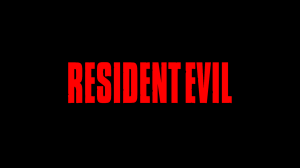HBO’s The Last of Us rapidly became a cultural phenomenon, translating the beloved video game’s harrowing post-apocalyptic narrative into a critically acclaimed television series. Audiences were captivated by its unflinching portrayal of a world ravaged by a fungal pandemic, but more so by the deeply emotional journey of Joel Miller (Pedro Pascal), a hardened survivor, and Ellie (Bella Ramsey), a young girl immune to the infection who may hold the key to humanity’s future. The show masterfully blended intense survival horror, morally complex characters, and profound explorations of the desperate lengths people will go to protect what matters to them, all set against a beautifully desolate American landscape.
Videos by ComicBook.com
If the gripping story of Joel and Ellie left you searching for more series that deliver similar emotional depth, high-stakes survival, and thought-provoking explorations of humanity under duress, you’re in the right place. The following shows, while diverse in their specific premises, share thematic DNA with The Last of Us, whether it’s through their post-disaster settings, their focus on complex interpersonal relationships forged in crisis, or their unflinching look at the best and worst of human nature when society crumbles.
1) Chernobyl
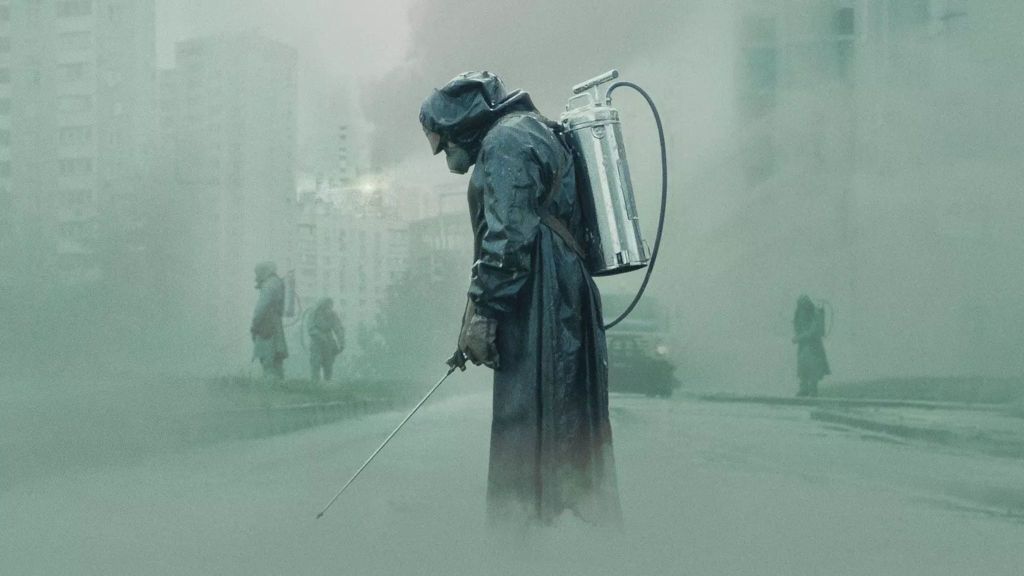
The historical drama miniseries Chernobyl delivers a meticulously researched recounting of the 1986 nuclear disaster and the monumental efforts to contain its catastrophic fallout. Anchored by powerful performances, the series features Jared Harris as Valery Legasov, the physicist grappling with the scale of the crisis; Stellan Skarsgård as Boris Shcherbina, the government official navigating bureaucratic and political impediments; and Emily Watson as Ulana Khomyuk, a composite character embodying the collective courage and intellect of the many scientists who tirelessly sought to uncover the truth. As a result, Chernobyl stands as a harrowing examination of systemic failure and of the devastating human toll exacted by deception and institutional hubris.
While Chernobyl diverges from a pandemic narrative to explore a real-world technological catastrophe, The Last of Us fans will find particular resonance in its profound focus on human drama unfolding amidst large-scale devastation. Indeed, those who valued Joel and Ellie’s perilous journey may discover a deep connection with Chernobyl‘s depiction of unwavering dedication as individuals confront incomprehensible forces. The exploration of agonizing moral compromises, made under unimaginable pressure, is another powerful point of potential resonance. Ultimately, Chernobyl serves as a testament to the stubborn resilience of the human spirit in its darkest hours, a theme central to human survival that both narratives explore with unflinching honesty. It also helps that the two shows share a creator in Craig Mazin
2) Station Eleven
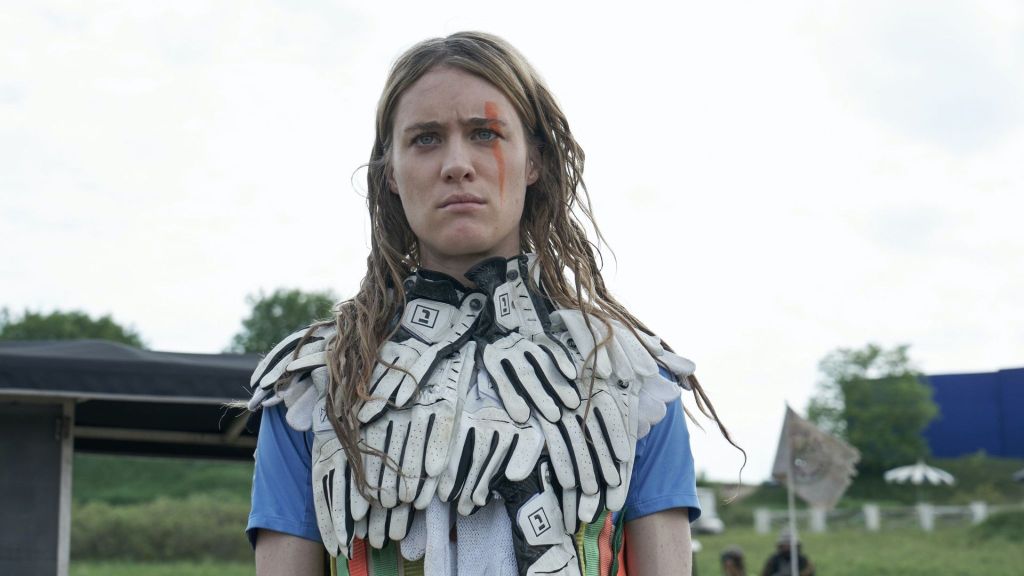
Based on Emily St. John Mandel’s novel, Station Eleven presents an ultimately hopeful yet undeniably poignant perspective on a post-pandemic civilization where the “Georgia Flu” has decimated most of humanity. One of its central themes, the enduring necessity of art and community in the face of immense loss, immediately offers a different kind of survival narrative that can complement the brutal pragmatism seen in The Last of Us. The series elegantly interweaves multiple timelines, primarily following Kirsten Raymonde (played by Mackenzie Davis and Matilda Lawler), a member of a traveling Shakespearean troupe, as she navigates a transformed world while contending with the ghosts of her past.
Station Eleven‘s character-driven exploration of how trauma both scars and reshapes individuals, often compelling them to forge new communities from the ruins of the old, presents a compelling spiritual counterpoint to Joel and Ellie’s more visceral fight for existence. For viewers who cherished the emergent found-family dynamics within The Last of Us, and who were deeply moved by those fragile glimpses of humanity persisting amidst widespread desolation, Station Eleven‘s emphasis on reconstruction, remembrance, and the quiet search for beauty.
3) The Walking Dead

As a foundational pillar of modern post-apocalyptic television, The Walking Dead immerses viewers in the ongoing saga of disparate groups of survivors navigating a world overrun by the undead, chillingly referred to as “walkers.” While the series has undergone significant change across its extensive run, its formative early seasons, particularly those centered on Rick Grimes (Andrew Lincoln) and his initial band of survivors, mirror the relentless peril confronting Joel and Ellie in Season 1 of The Last of Us. In both series, the struggle for existence is a constant, amplified by the dual threats posed by the hordes of the undead and the frequently treacherous actions of fellow humans.
[RELATED: The Last of Us Made a Surprising Change to One Major Character With Just One Line]
The Walking Dead extensively explores narrative territories that The Last of Us also powerfully charted, including the spontaneous formation of unconventional surrogate families and the crucible of morally agonizing choices. Beyond the visceral struggle against infected antagonists, the show offers an unflinching examination of how society attempts to rebuild and what fundamental aspects of humanity persist, or are terrifyingly eroded, when individuals are pushed to their absolute brink.
4) Silo
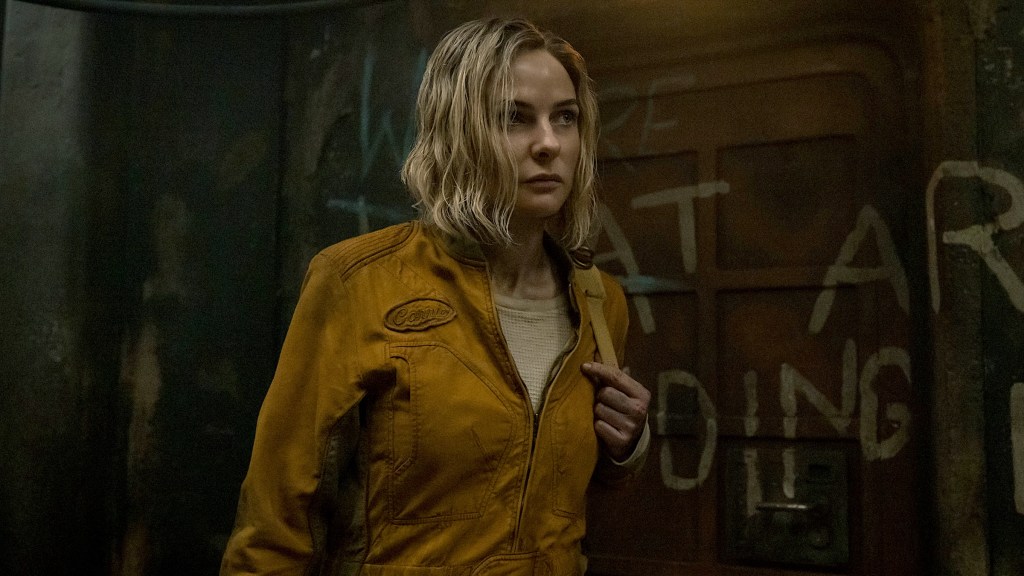
Set within the confines of a chillingly plausible dystopian future, Silo restricts the remnants of humanity to a colossal underground city after an enigmatic cataclysm rendered the Earth’s surface toxic and uninhabitable. Drawing from Hugh Howey’s “Wool” book series, the narrative follows Juliette Nichols (Rebecca Ferguson), a resourceful engineer whose skepticism and technical acumen lead her to unearth perilous truths concerning the silo’s shrouded history and the rigidly controlled society thriving within its metallic shell. Based on this premise, the series masterfully cultivates suspense through its claustrophobic environment and the persistent mystery surrounding the nature of the outside world and the true origins of their subterranean haven.
Viewers who were particularly drawn to the oppressive, militarized atmosphere of quarantine zones in The Last of Us, or to Ellie’s often dangerous pursuit of truth within a world deliberately built on layers of secrets, are likely to find a compelling narrative kinship in Silo‘s suspenseful drama. The series offers a keen exploration of themes such as nascent rebellion against suffocating authoritarian control, the insidious manipulation of information as a tool for societal subjugation, and an individual’s desperate quest for freedom and genuine understanding. Because of that, Silo appeal to audiences who enjoy thought-provoking speculative fiction, especially those who connect with characters fighting for agency in restrictive settings.
5) Sweet Tooth
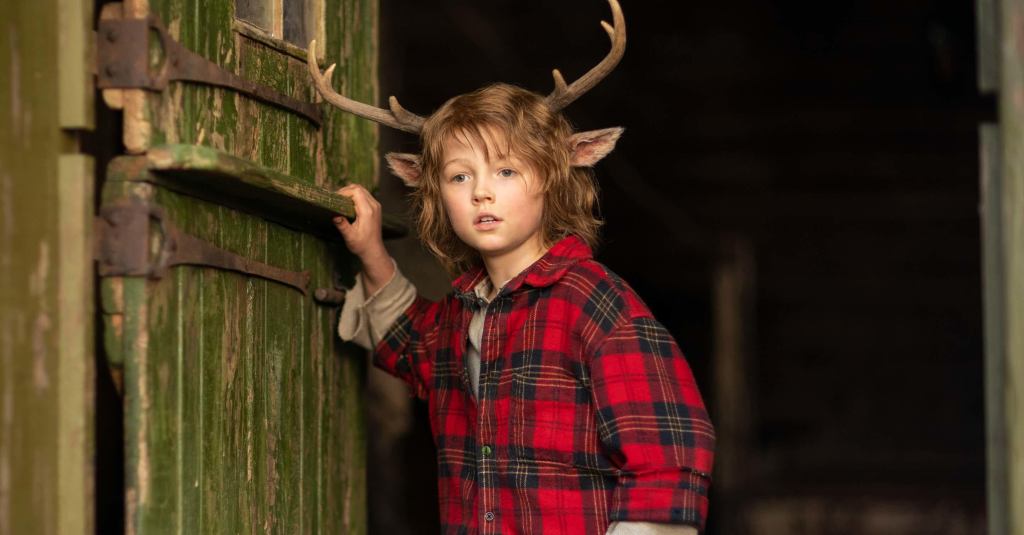
Adapted from Jeff Lemire’s acclaimed comic book series, Sweet Tooth unfurls in a post-apocalyptic landscape where a devastating virus, “The Sick,” has decimated the human population, an event mysteriously coinciding with the contemporaneous emergence of hybrid human-animal children. The narrative predominantly follows Gus (Christian Convery), a naive and sheltered young deer-boy, who bravely embarks on a cross-country journey alongside a reluctant protector, Tommy Jepperd (Nonso Anozie), in a shared quest for a new beginning.
While Sweet Tooth often adopts a more whimsical and visually distinct tone compared to The Last of Us, it doesn’t shy away from the inherent dangers and complex moral ambiguities that define its uniquely transformed world. Still, the heart of Sweet Tooth lies in the evolving bond between Gus and Jepperd, a dynamic that provides much of the story’s emotional weight. Their cross-country journey through a changed America is filled with unexpected warmth, offering viewers a tale that balances adventure and peril with a core of hope and innocence.
6) The Leftovers
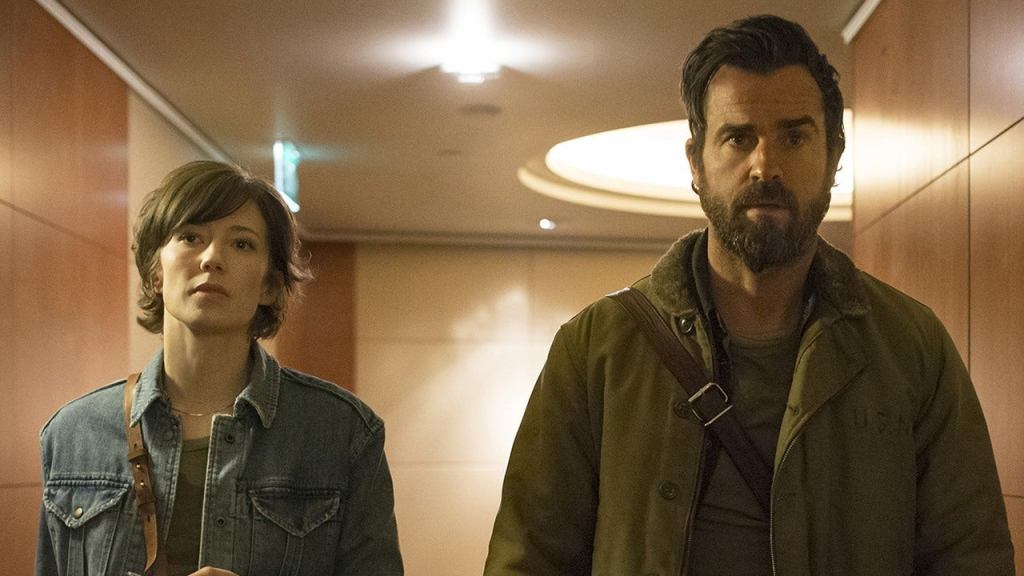
Co-created by Damon Lindelof, The Leftovers delves into the puzzling aftermath of a global event of inexplicable nature known as the “Sudden Departure,” during which 2% of the world’s population instantaneously and inexplicably vanishes. The series, featuring compelling performances from Justin Theroux as Kevin Garvey, Carrie Coon as Nora Durst, and Amy Brenneman as Laurie Garvey, deliberately eschews any attempt to explain the cause or mechanics of the Departure. Instead, it dedicates its narrative focus to the multifaceted experiences of those left behind: their profound grief, their consuming existential crises, and the pervasive societal breakdown as they collectively and individually struggle to find meaning in a world irrevocably altered.
The Leftovers is a deeply philosophical and character-driven show that thrives on ambiguity and emotional honesty. It portrays how individuals and communities fracture and reform as they grapple with questions that have no easy answers. While not a traditional survival story, it is an intense psychological drama about enduring world-altering trauma. Because of that, The Last of Us fans who appreciate narratives that delve into the complexities of the human condition in the face of catastrophe will find a rich and thought-provoking experience in The Leftovers.
7) Yellowjackets
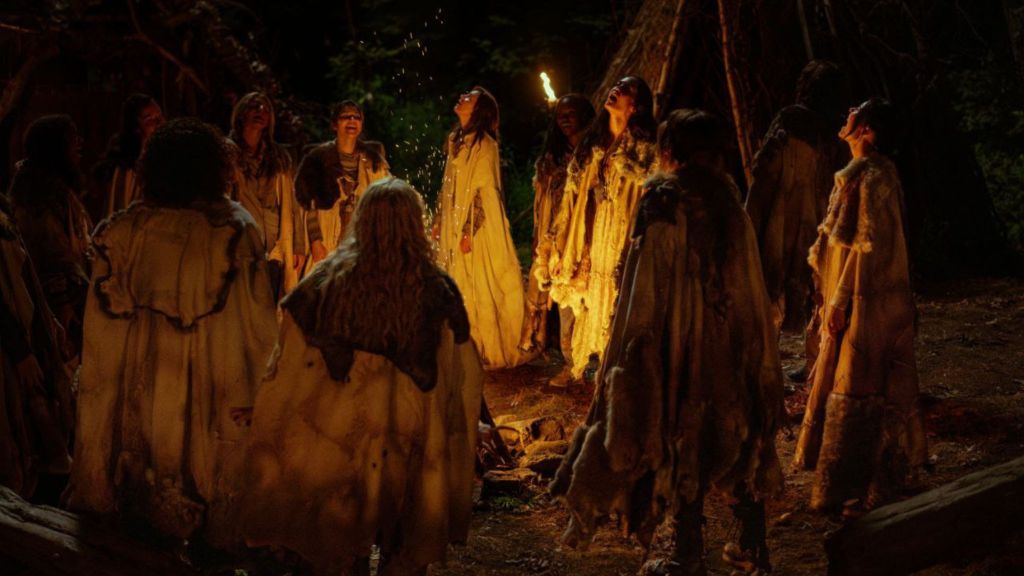
Yellowjackets spins the psychologically complex tale of a highly talented high school girls’ soccer team who find themselves the (un)fortunate survivors of a catastrophic plane crash deep within the remote Canadian wilderness. The narrative cleverly unfolds across dual timelines. The first one meticulously details their brutal, 19-month struggle for survival in the 1990s, charting their descent into primal behaviors. The other is set in the present day, revealing how this traumatic experience continues to cast a long shadow over the adult survivors, including Shauna (Melanie Lynskey as adult, Sophie Nélisse as teen), Taissa (Tawny Cypress as adult, Jasmin Savoy Brown as teen), Natalie (Juliette Lewis as adult, Sophie Thatcher as teen), and Misty (Christina Ricci as adult, Sammi Hanratty as teen).
Yellowjackets is a compelling exploration of trauma, the breakdown of societal norms under extreme pressure, and the morally ambiguous actions people take to stay alive. The intensity of the characters’ ordeal and the dark secrets they harbor provide a gripping look at human resilience and savagery, themes that are also central to The Last of Us. For those drawn to stories about the psychological toll of extreme trauma and the unsettling exploration of what people are capable of when pushed to their absolute limits, it offers an unnerving experience.
Which shows would you recommend to fans of The Last of Us?






